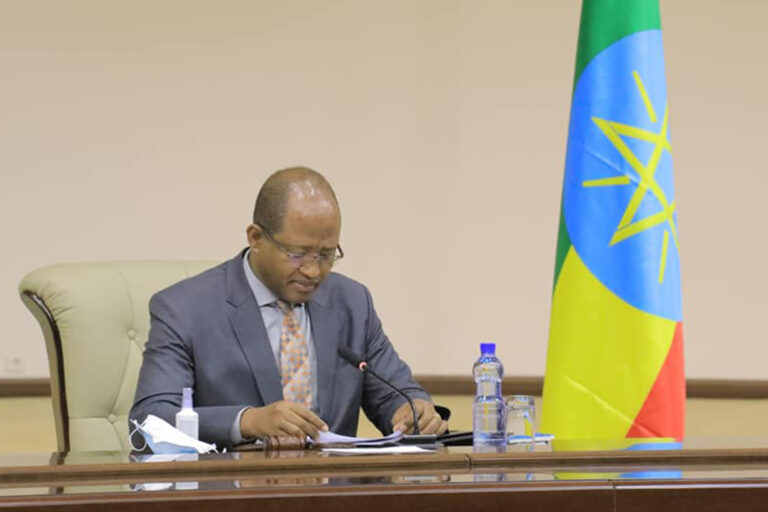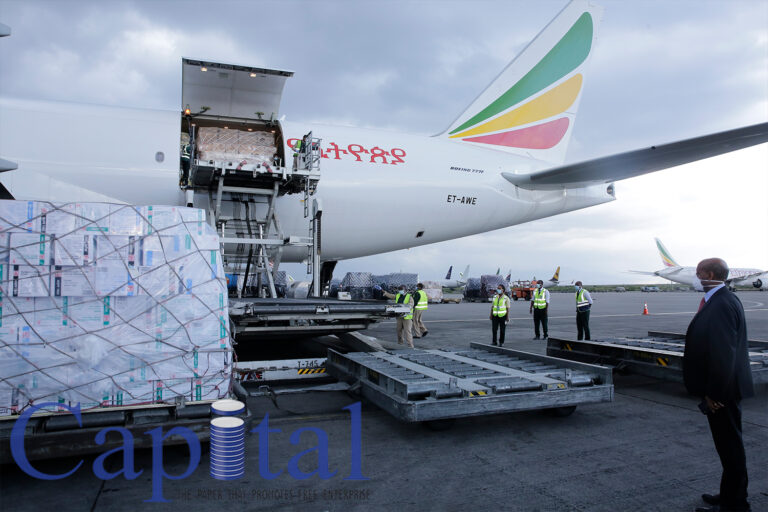Plan and Development Commission (PDC) was planning to hold a public discussion for the document it prepared. The document dubbed as Ethiopia’s first-ever ten-year Perspective Development Plan aims to address the existing challenges of sustainable economic development. The ten-year plan mainly focus on solving the social and economic issues of the country. Fitsum Assefa who is the Minister in Charge of Planning and Development Commission talked to Capital about the Commission’s ten year plan and how the current pandemic affect their plan. Excerpts;
Capital: How do you compare the current Growth and Transformation Plan and the impact of Covid 19?
Fitsum: The five year GTP plan is going to end this year so we need to develop a new plan. We were doing lots of researches and to use as input to frame the ten years plan. We have done over 12 researches with both locally and foreign support especially by the Korean government institutions. We have done the macroeconomic frame work plan. Then we call on the relevant stakeholders and discuss with every sector to compare it with their own ten year plan based on their and our targets and indicators.
We were about to commence public discussion and to implement the plan; but because of the corona outbreak we postponed the discussion. We planned to finalize the plan and start using it in the coming year of 2013 Ethiopian calendar.
Because of the outbreak of the pandemic lots of activities have been distracted and we realize that there are targets, strategies, pillars, and lots of things have to be revised and redefined again that are needed to be part of the plan. 
We were doing researches internally such as the short term and long term impact of the pandemic on the economy, job and propose them to the government to take policy suggestions.
At the beginning of the current fiscal year we have estimated 9 percent GDP growth but according to the researches because of the pandemic it may decline from 2.8 percent to 3.8 percent so the growth would be between 5 and 6 percent. Moreover 700,000 up to 1.1 million jobs are in danger, which are mostly from the service sector such as hotels, entertainments, tourism, and transport sectors because of the measurements taken to control the spread of the virus. So as the researches suggests there is a need to the intervention of the government support as fast as it can.
Capital: IMF forecast 6 percent GDP growth which is different from the plan commission, so what makes the difference, what are the different indicators between the two?
Fitsum: First there is no one who knows our economy capacity more than us. One of the big difference between us is that on the beginning of the year we start with 9 percent GDP growth forecast and IMF 6.2 forecast. IMF and the World Bank always categorize every developing country in one least developed category which is one of the development economics downsize. Every country has different back ground and capacity as least developed Asian countries are different from the African countries and even the African countries are different by themselves.
When we say 9 percent growth it is because we know where our agriculture stands and even if we are on low base there is a huge potential. The government is highly intervening on agro mechanization.
The one thing IMF should consider is that Ethiopia is reforming.
Capital: Researches show that not only the service sectors but also the industry sector is highly affected by the pandemic, how do you see this?
Fitsum: Covid-19 is full of uncertainty globally, we have been assessing the damages of the pandemic on the manufacturing sector level. One of the indicators on the industry sector is losing of job and lay off. We are expecting 5 percent unemployment rate on the manufacturing sector but this is without government intervention. So to minimize this, the government had been talking and supporting the sector. There are also different measures taken to minimize the effect that can affect the sectors including the social distance, lack of inputs because most countries are in lock down and the logistic system is disturbed.
Also the construction sector is affected so the layoff would be high especially for those unskilled and semiskilled employees.
Capital: Tell us about the ten years plan. What is the difference from the previous GTP, what are the pillars?
Fitsum: The big difference is that this plan is highly researched in all the different sectors. Different experts participated in the drafting process. We have been assessing the previous one with what the gaps are and what should be done to fill them.
The other thing is that when the GTP II was planned participation of the different sectors was limited, but on our ten year plan we have requested each and every ministry offices to come up with their own ten years plan and we support them.
The other main improvement is that sectors has never planned together, which made our previous plans ambitious so now we made them to plan together to create synergy.
One of the main pillars of the plan is that assuring efficient and sufficient economic growth.
The second one is that assuring efficient economic growth to all through sustainable income of growth.
The other thing is that creating computable and productive industries especially on the export sector. We have to cut off these unnecessary costs and improve the technology.
Lots of things were taking long time which can be done with short times, lots of government services are changing to value add E-service. Because of the pandemic we were forced to approve E-transaction proclamation. This can improve e-commerce and financial technologies what we call FINTECH increase money velocity, ease of doing business.
Generally through society concessions we have to create civil servant that can differ services of the public and party plans, and have the ability to work in its position, non-corrupted and can cooperate with the private sector to the development of the country.
One of the main parts of the plan is to assure the participation of youths and women on the development. 50 percent of the population is women and 70 percent of the population is youth. We have to use them properly as means of the development otherwise as the last four and three years they could be destructives.
Increasing the participation of the private sector on the development is the other part of the plan. The government needed to decrease its engagement in the economy. Previously the government was heavily engaged in the economy and doing lots of things that should be done by the private sector but now it needs to minimize it.
The other thing we learn is that we have to focus on technology and importance of innovation research and development. There are always researches, we invest a lot but it lacks consistency.
The focus area of the plan are modernization and transformation of the agriculture sector, we have to able to satisfy food security and increasing the investment in agriculture.
Other part of our plan is enabling mechanism sectors. One is the logistics and transport sector which needs to do more to Increase the efficiency of economic. The investment should be traced with the economic corridors.
The second one is energy which is a big binding constraint on the development of infrastructure in the country next to foreign currency so we have to work on our dams including the renaissance dam to fulfill the local demand and start exporting also.
The next sector is irrigation infrastructure, agriculture is the back bone of the economy but it is dependent on rainfall. We have to break that through connecting the land with irrigation we have high resources of water but we didn’t use it to do so we have to develop our irrigation infrastructure.
The next is innovation and technology to ensure long term growth, to create job opportunities and efficient economy so we should work on that more and more.
Next part of the plan is human capital development. To ensure this first we have to work on the health and education systems, must be efficient and qualitative to create skilled and healthy man power. Our education system must be combined with different dimensions to create innovative youth.
Capital: Is there any plan you have postponed because of covid-19?
Fitsum: We were aggressively working on reforming the systems but because of covid-19 we are stuck with our targets and focus on the critical issues currently, which is health of the population. Because of covid-19 we have seen a lot of things we never consider, regarding the investment sector, innovation and technology and job creation. We have to create shock resilient jobs and globalized sectors such as the Ethiopian airlines which can shift its services in such times.
We always cannot depend on the other world we have to be self-sufficient at least with our basic needs.










